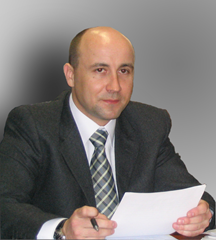Pałka Tomasz

Assoc. Prof. Tomasz Pałka, PhD, University Professor at the University of Physical Education in Kraków
Tomasz Pałka was born on November 27, 1973, in Tarnów, Poland. He graduated from the 3rd Secondary School in Tarnów (named after Adam Mickiewicz), with a specialization in biological and chemical sciences. He subsequently pursued higher education at the University of Physical Education in Kraków, majoring in Physical Rehabilitation, and earned his master’s degree in 1997.
His academic interests in human physiology were developed under the mentorship of eminent scholars from the Department of Physiology and Biochemistry at the University of Physical Education in Kraków, including Prof. Ryszard Kubica, Prof. Aleksander Tyka, and Prof. Wanda Pilch. His scientific output comprises over 160 publications, with a cumulative Impact Factor exceeding 180. He has participated in 29 research projects funded by national and European Union programs and has contributed to more than 90 national and international conferences. He has conducted over 70 expert physiological assessments for elite athletes, including members of national teams.
Throughout his academic career, he has completed two domestic and 22 international research internships, along with four scientific visits. As part of international collaborations, he has conducted research at two Polish and eight foreign academic institutions, including those in Spain, France, Bulgaria, Slovakia, Iran, Tunisia, and the United Kingdom.
Since 2005, he has supervised over 230 diploma theses and has reviewed more than 100 academic works. He has promoted three PhD candidates, with three additional doctoral students currently pursuing their research under his supervision at the Doctoral School of the University of Physical Education in Kraków. He has also served twice as an auxiliary supervisor in PhD proceedings. In total, he has participated in 53 doctoral committees and in three habilitation review processes.
His research focuses on several key areas, including:
-
Environmental physiology – studying the variability of thermoregulatory mechanisms during exercise in individuals residing in different climate zones and high-altitude environments.
-
Cycloidal-oscillatory vibration therapy – analyzing its effects on physiological and metabolic parameters in the human body.
-
Application of physiological testing in elite sports and industrial contexts.
-
Physiological aspects of physical activity in individuals with disabilities.
-
Biological regeneration, the effects of supplementation on health, and general physical activity.
-
Performance-related studies on physical capacity, body morphology, and sport level in martial arts athletes.



